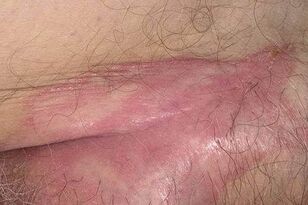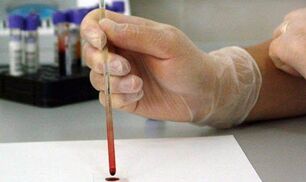Psoriasis is one of the most serious dermatological diseases. The disease is of an incurable autoimmune nature and occurs in patients of all ages. A feature of the disease is its wavy nature. Relapses are followed by periods of calm and vice versa. The duration of remission always depends on the type, form of the disease and the individual characteristics of the patient.

The main symptoms of psoriasis are unpleasant pink or red spots that appear on various parts of the human body. In medical practice, such rashes are usually called plaques or papules. In most cases, the plaques are covered with scales characteristic of the pathology and rise above the surface of healthy skin by several millimeters. Also, the signs of psoriasis include signs such as severe itching in the area of the lesions and inflammation.
Psoriasis, the causes of which have not yet been elucidated, is diagnosed in every tenth person who consults a doctor with skin problems. The disease is prevalent mainly among adults, but is often found in children. At risk are residents of countries with a cold and humid climate. The rate of the disease in people in cold countries is higher than that among residents living in warm climates.
What is psoriasis: a theory on the origin of the disease
Until now it has not been possible to find out exactly the causes of the disease, it is not even clear how psoriasis begins. Even the joint efforts of world scientists do not allow to give an answer to the question of why does psoriasis appear? According to Wikipedia, in modern medical practice there are several theories about the onset of this disease. However, none of them are officially backed up. Theories for the development of psoriasis include the following:
- Immune.
- Hereditary.
- Hormonal Disorder Theory.
- Theory against a background of stress.
- Disorders of metabolic processes.
- Viral origin.
Based on clinical studies and laboratory data, scientists were able to identify several points of view that suggest possible causes of the development of the pathology.
Immune theory
Many scientists determine the causes of psoriasis in children and adults by the characteristics of the immune system. This theory is by far the most widespread. From the point of view of its founders, the appearance of plaques on the body of a different nature occurs due to the activity of immune cells, which perceive certain areas of the dermis as an aggressor. This results in severe inflammation and redness of the skin.

The causes of psoriasis on the body in terms of immune theory can be the following:
- rubbing the skin with clothes and shoes;
- is burned;
- freezing;
- microcracks;
- scratches.
According to the results of the test, it was possible to identify the presence of a large number of immune cells in places where psoriatic spots appear. This is a partial confirmation of the immune theory.
Genetic theory
Its other name is the theory of inheritance. Many scientists believe the disease is hereditary. This is proved by numerous surveys, the results of which showed that in the case of a pathology in the mother, the risk of developing a disease in a child is 20-25%. If both parents suffer from psoriasis, the percentage rises to 75.
Genetic predisposition is considered one of the main factors in the development of the disease. With a combination of several provoking factors, the risk of pathology increases significantly.
Important! If a child's parents are sick with psoriasis, this cannot guarantee one hundred percent that the child will surely develop the same disease. Heredity only increases the risk of disease.
Endocrine theory
The cause of psoriasis on the hands, back, head and other parts of the body is also partly explained by the endocrine theory. Here, scientists suggest that pathological changes in the dermis occur due to a hormonal imbalance in the body. Dysfunction of the normal functioning of the endocrine system causes a decrease in the healthy vital activity of the cells of the dermis.
Hormonal imbalances can occur for the following reasons:
- pregnancy period;
- menstruation;
- taking hormonal drugs;
- puberty.
Important! According to the results of medical research, a violation of the hormonal level in the patient's blood is not observed in all cases. In light of these facts, the endocrine system cannot be considered fundamental.
Neurogenic theory
The onset of psoriasis also supports neurogenic theory. This view explains the aspect of the disease as a result of stress and strong emotional experiences. Representatives of this theory believe that the cause of the appearance of psoriasis may lie in malfunctions of the central nervous system.

As a result of the experiences, the patient has such a phenomenon as a neurosis of the vascular walls. This causes a narrowing of the vascular musculature and a reduction in blood flow. The consequence is the appearance on the body of rashes in the form of scaly plaques.
According to surveys, in more than half of all patients with psoriasis, the onset of the disease was preceded by strong experiences and stress.
Theory of exchange
The reasons for the appearance of psoriasis in women and men can also lie in the violation of metabolic processes in the body. This is the opinion of the representatives of the theory of metabolic disorders.
According to medical research, it was possible to find a clear connection between psoriasis and metabolic disorders in the body. Violation of lipids and other processes leads to a change in the composition of the blood, weakening of immunity and other negative consequences.
The following factors can cause metabolic disturbances:
- diabetes mellitus;
- kidney and liver disease;
- unbalanced diet;
- Sedentary lifestyle.
Viral theory
Some scientists explain the causes of psoriasis through the transfer of a viral infection or the presence of chronic inflammatory foci in the body. This theory is to some extent related to the genetic one. Representatives of this point of view believe that infection can become a stimulus for the development of pathology.
What factors can trigger psoriasis?
In addition to the theories on the origin of the disease, there are several provoking factors. These include:
- Unhealthy diet, consumption of food allergens, insufficient amount of vitamins and microelements.
- Bad habits such as alcohol, cigarettes and drugs.
- Incorrect or premature withdrawal of medication.
- Various injuries to the dermis.
- Hormonal imbalance in the body.
Heredity and a combination of several provoking factors can lead to a disease such as psoriasis. It is very important to diagnose the pathology in a timely manner and start adequate treatment. This will help avoid many negative consequences in the future.
Why psoriasis is dangerous
At first, the disease may not cause much discomfort, but if left untreated, the disease will become severe with constant relapses. Therefore, it is important to start treatment in a timely manner and to prevent the development of psoriasis. As a prophylaxis, you can use traditional medicine and its means, but only with the agreement of a doctor.
Now that you know what causes psoriasis, you need to start treating it. At the first symptoms, consult your doctor, self-medication can seriously harm health.
























